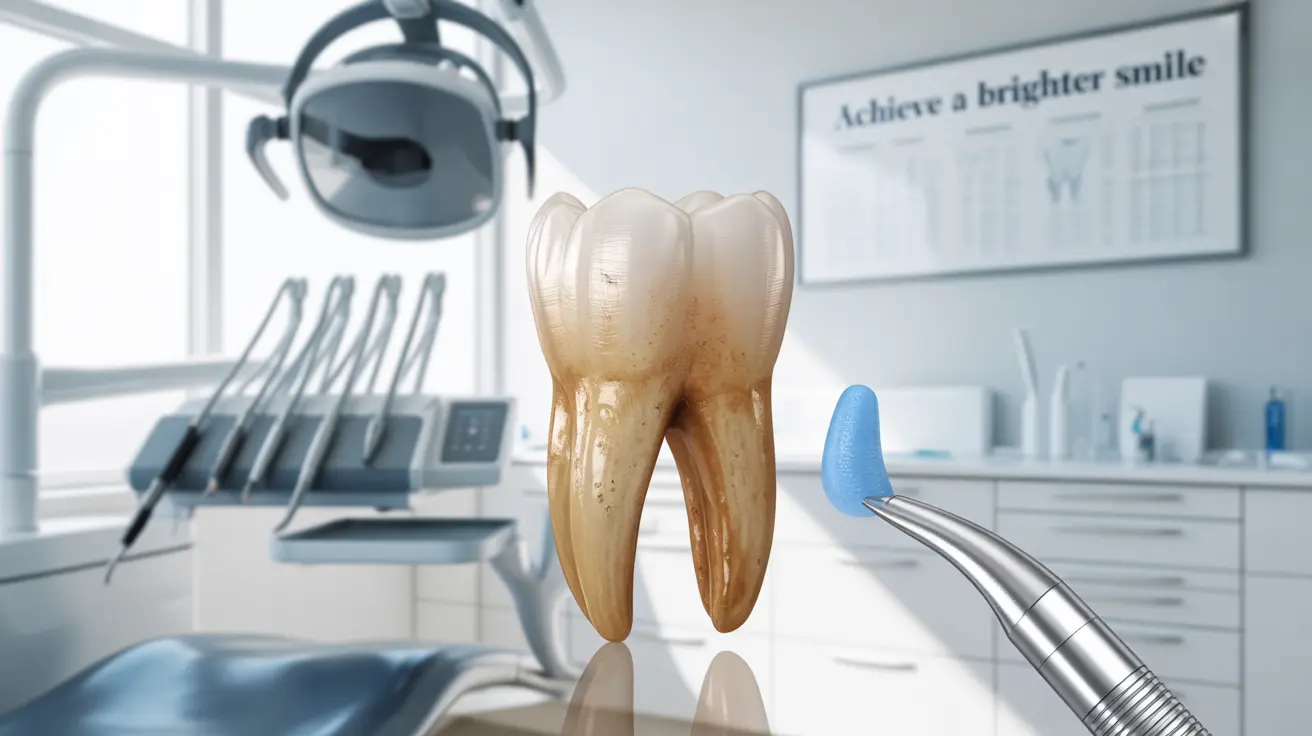Tobacco stains can significantly impact the appearance of your teeth, leaving behind unsightly yellow or brown discoloration that affects your confidence. Whether you're a current or former tobacco user, understanding the most effective methods for removing these stubborn stains is crucial for restoring your smile's natural brightness.
In this comprehensive guide, we'll explore both professional and at-home solutions for removing tobacco stains, along with preventive measures and safety considerations to help you achieve the best results.
Professional Teeth Whitening Solutions
Professional dental treatments offer the most rapid and effective results for removing tobacco stains. These methods are performed under the supervision of qualified dental professionals, ensuring both safety and efficacy:
In-Office Laser Whitening
This advanced treatment combines powerful whitening agents with specialized laser technology to break down deep-set tobacco stains. The procedure typically takes 60-90 minutes and can lighten teeth by several shades in a single session.
Professional Cleaning and Polishing
A thorough professional cleaning removes surface stains and tartar buildup, often revealing notably whiter teeth. This procedure may include air polishing, which uses a combination of water, air, and fine powder to blast away stubborn stains.
At-Home Whitening Options
Over-the-Counter Whitening Kits
These products offer a more affordable alternative to professional treatments and can be effective when used consistently:
- Whitening strips
- Gel trays
- LED whitening devices
- Whitening toothpaste
Natural Remedies and DIY Solutions
Several natural methods may help reduce tobacco stains, though results typically take longer to achieve:
- Baking soda paste
- Oil pulling
- Activated charcoal
- Apple cider vinegar (diluted)
Preventive Measures and Maintenance
Taking proactive steps to prevent stain formation can significantly impact your oral health and appearance:
- Regular brushing after smoking
- Using a straw for liquid tobacco products
- Maintaining proper oral hygiene
- Regular dental checkups
- Using whitening toothpaste daily
Safety Considerations
While pursuing whiter teeth is important, it's essential to approach stain removal safely:
- Avoid excessive use of abrasive materials
- Follow product instructions carefully
- Consult your dentist before starting any whitening regimen
- Watch for signs of tooth sensitivity or gum irritation
- Consider professional guidance for severe staining
Frequently Asked Questions
What is the fastest professional method to remove tobacco stains from teeth?
Professional laser whitening treatment is the fastest method for removing tobacco stains. This procedure can lighten teeth by several shades in a single 60-90 minute session, providing immediate and noticeable results under dental supervision.
How effective are at-home whitening kits for removing tobacco stains on teeth?
At-home whitening kits can be moderately effective for removing tobacco stains, though results typically take longer than professional treatments. Over-the-counter products containing hydrogen peroxide or carbamide peroxide can show visible improvement within 1-2 weeks of consistent use.
Can natural remedies like baking soda and activated charcoal quickly remove tobacco stains?
Natural remedies can help reduce tobacco stains gradually but aren't as quick as professional methods. Baking soda and activated charcoal work through mild abrasion and absorption, requiring regular application over several weeks to show notable results.
How can I prevent tobacco stains from forming on my teeth after smoking?
To minimize staining, brush teeth promptly after tobacco use, maintain excellent oral hygiene, use whitening toothpaste daily, and schedule regular professional cleanings. Using a straw for liquid tobacco products can also help reduce direct contact with teeth.
Are there any risks or side effects of using DIY whitening methods on tobacco-stained teeth?
DIY whitening methods can pose risks including tooth sensitivity, enamel erosion, and gum irritation if used improperly. Natural remedies, particularly abrasive ones, should be used cautiously and not too frequently to avoid damaging tooth enamel. Always consult a dentist before starting any whitening regimen.




